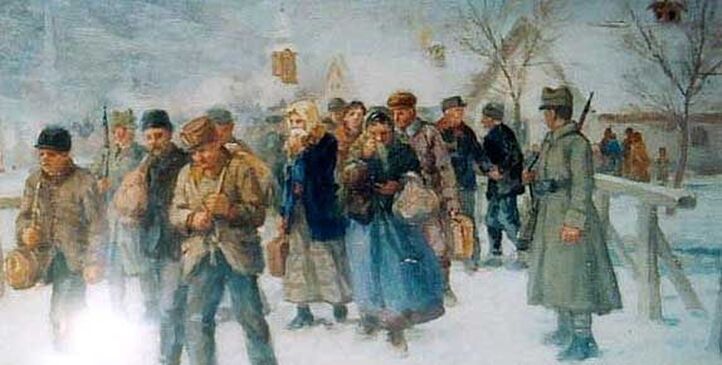That most people in the West do not know who Danube Swabians are or were is not surprising. Much of the general ignorance about Danube Swabians stems from the paradox of past and present I touched upon above. On the one hand, descendants of Danube Swabians - like me - still exist. On the other hand, the culture from which we originated is essentially dead in Europe, destroyed by waves of ethnic cleansing and the consequent communist frost that settled over Eastern and Central Europe at the end of the Second World War.
I bear no grudge against the Anglo West for not knowing much about us Danube Swabians. After all, nearly seventy years have passed since the unique, hybrid German culture that had existed primarily in pockets of Hungary and the former Yugoslavia was extinguished. Seventy years is a long time. Even descendents of Danube Swabians, yours truly among them, struggle to understand who they are, or rather, who they were and where they came from.
"Perched on Nothing's Branch" is the translated title of a book of poems by Hungarian poet Attila József. Though József wrote no poems about Danube Swabians, the title is a perfect way to describe the reality in which Danube Swabians like me exist. We are essentially suspended in the air, perched on a branch of a tree that has long been cut down. And it is only a matter of time before gravity pulls us down as well. When it does, it will pull down memory as well, after which we will exist as little more than curious, obscure footnotes in the books of forgotten history.
I call myself Hungarian, and I am culturally Hungarian, but from an ethnic perspective, there is nothing Hungarian about me. Not a single drop of Magyar blood courses through my veins. Yet I speak almost no German, and I struggle to remember even the most basic customs and beliefs of my "real" people. My ancestors on both sides were ethnic German migrants who settled in Hungary in the late seventeenth century to fill the gaping wounds the Ottoman Empire had left in its wake after it withdrew its forces from Hungary after nearly two centuries of occupation. These ancestors of mine integrated themselves into Hungarian society to a certain extent, but maintained their language and unique traditions right up until the middle of the twentieth century, when the cold gears of diplomacy and history ground the unique culture and traditions they had developed and maintained over the course of three or four centuries into dust.
I have always been intrigued by my people's history, so much so that I made the protagonist of my novel The City of Earthly Desire, a Danube Swabian. In fact, in the first part of the novel I present a fictionalized account of what happened to most Danube Swabians living in Baranya County in southern Hungary following the conclusion of the Second World War. I personally believe that part to be the best part of the book, and I am proud to have written it. Including some Danube Swabian history into the narrative was my way of dealing with my own lost culture; my way of trying to preserve the memory and traditions of my people; my way of attempting to replace a part of the tree that had been cut out from underneath us.
I felt inspired to jot down some thoughts about Danube Swabians after reading this short article that appeared in the online magazine Emerging Europe, of all places. The journalist who wrote the article is of the typical, modern, progressive variety, but the approach she uses in this article is surprisingly neutral. It is worth a read, if for no other reason than to provide a basic overview of what Danube Swabians are, or rather what they were. The journalist claims Danube Swabian culture is experiencing a sort of revival, but I find this to be outrageously optimistic. But this is perfectly understandable. After all, it's difficult not to be pessimistic when you have spent your whole life perched on nothing's branch.


 RSS Feed
RSS Feed

